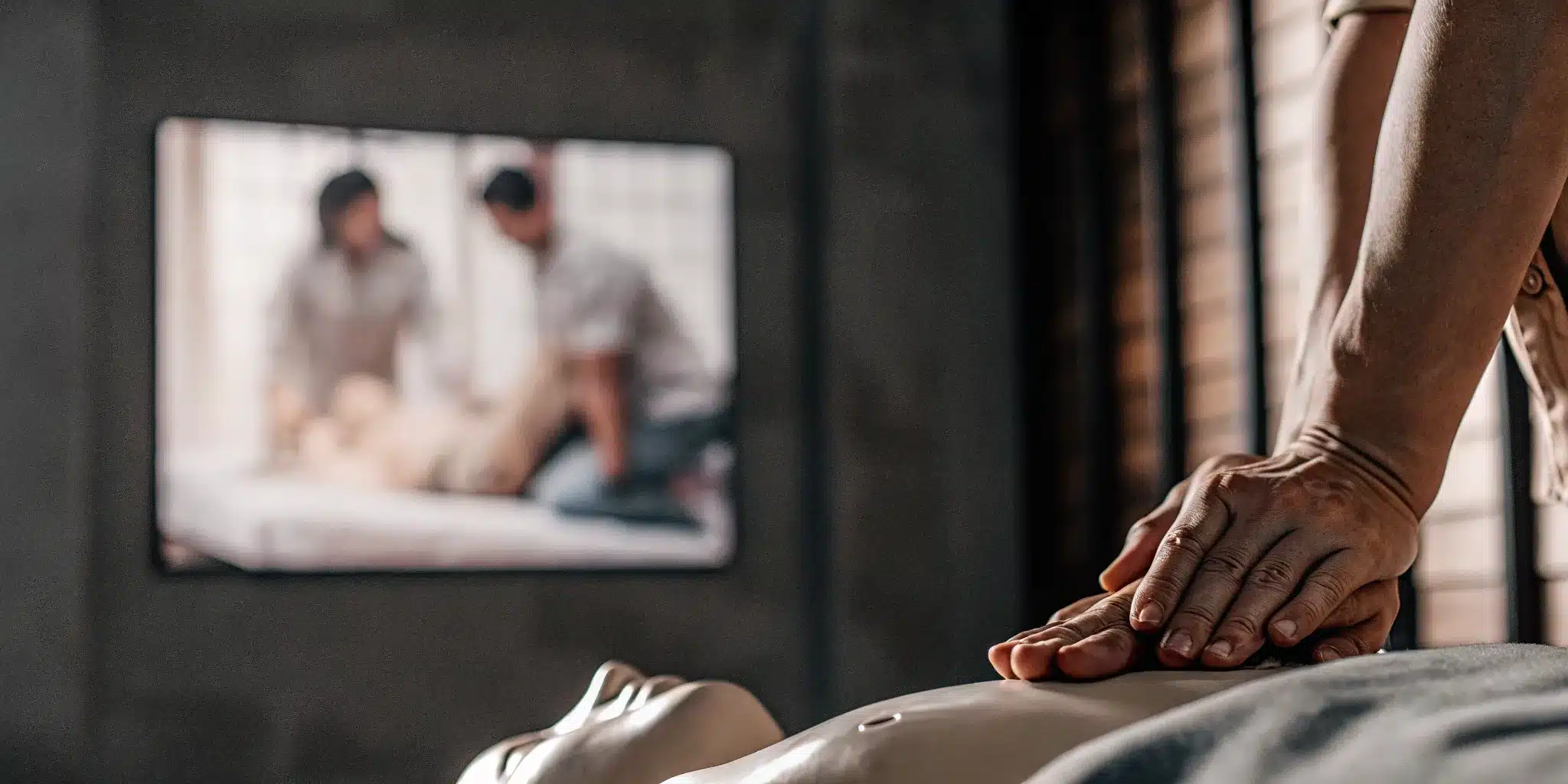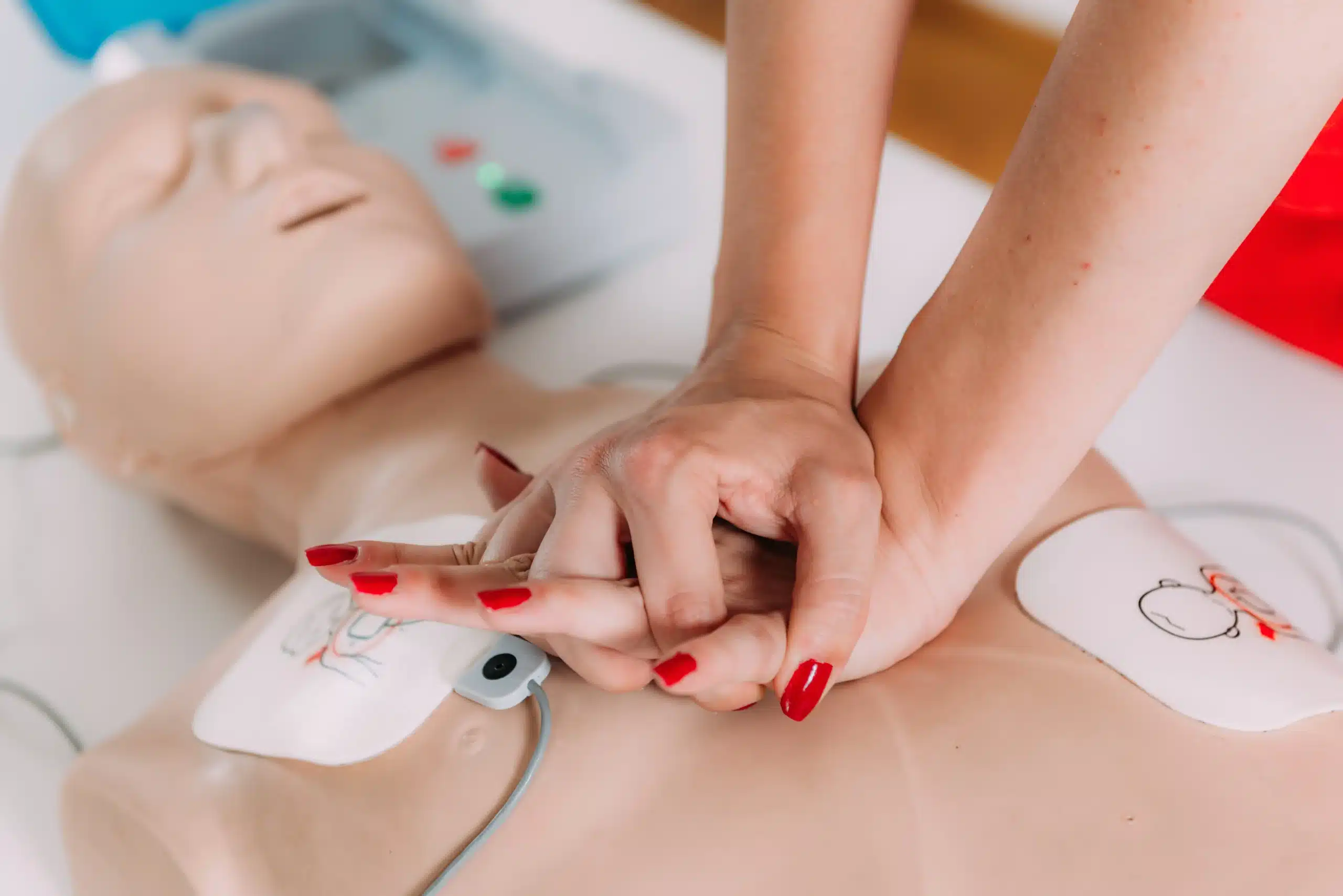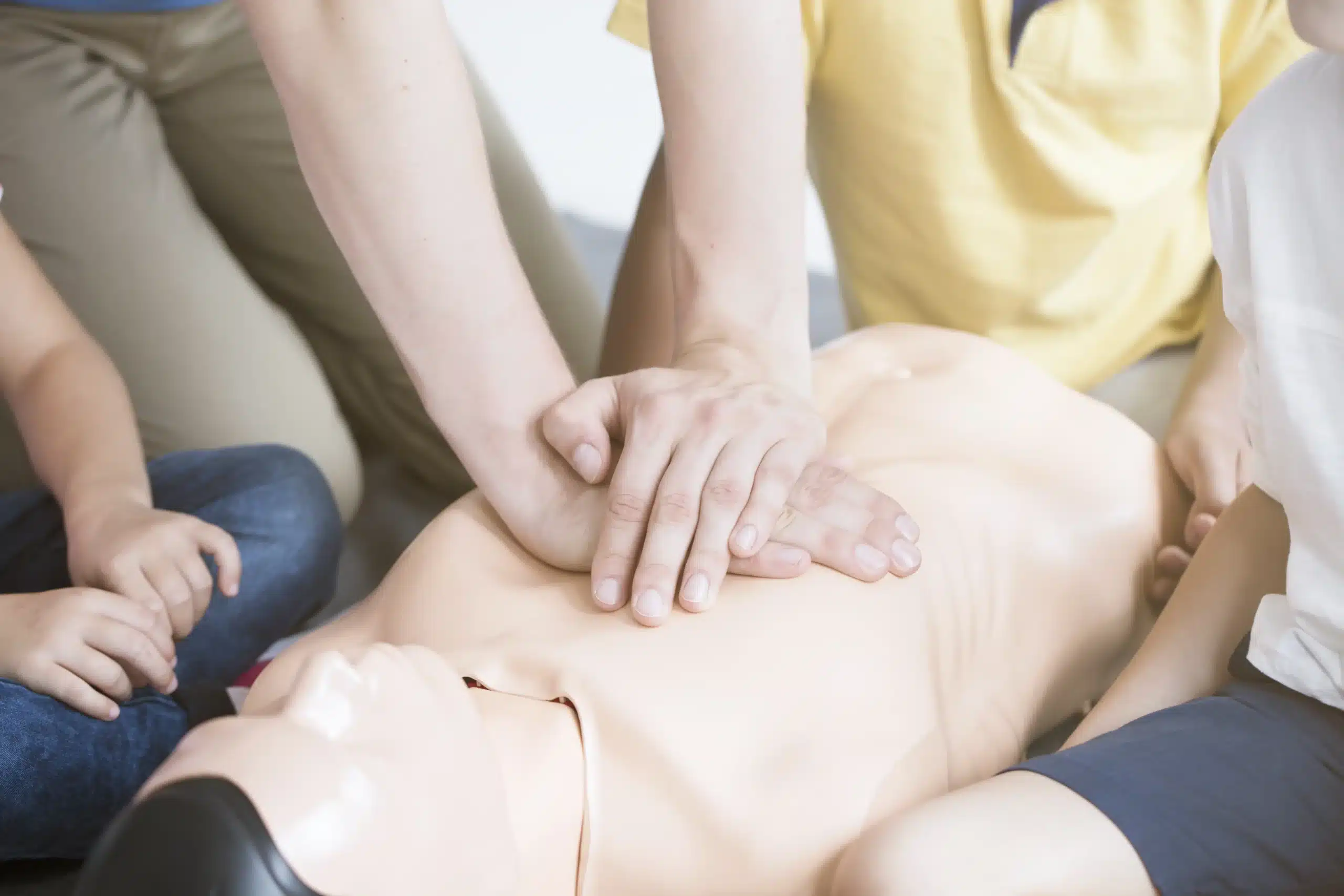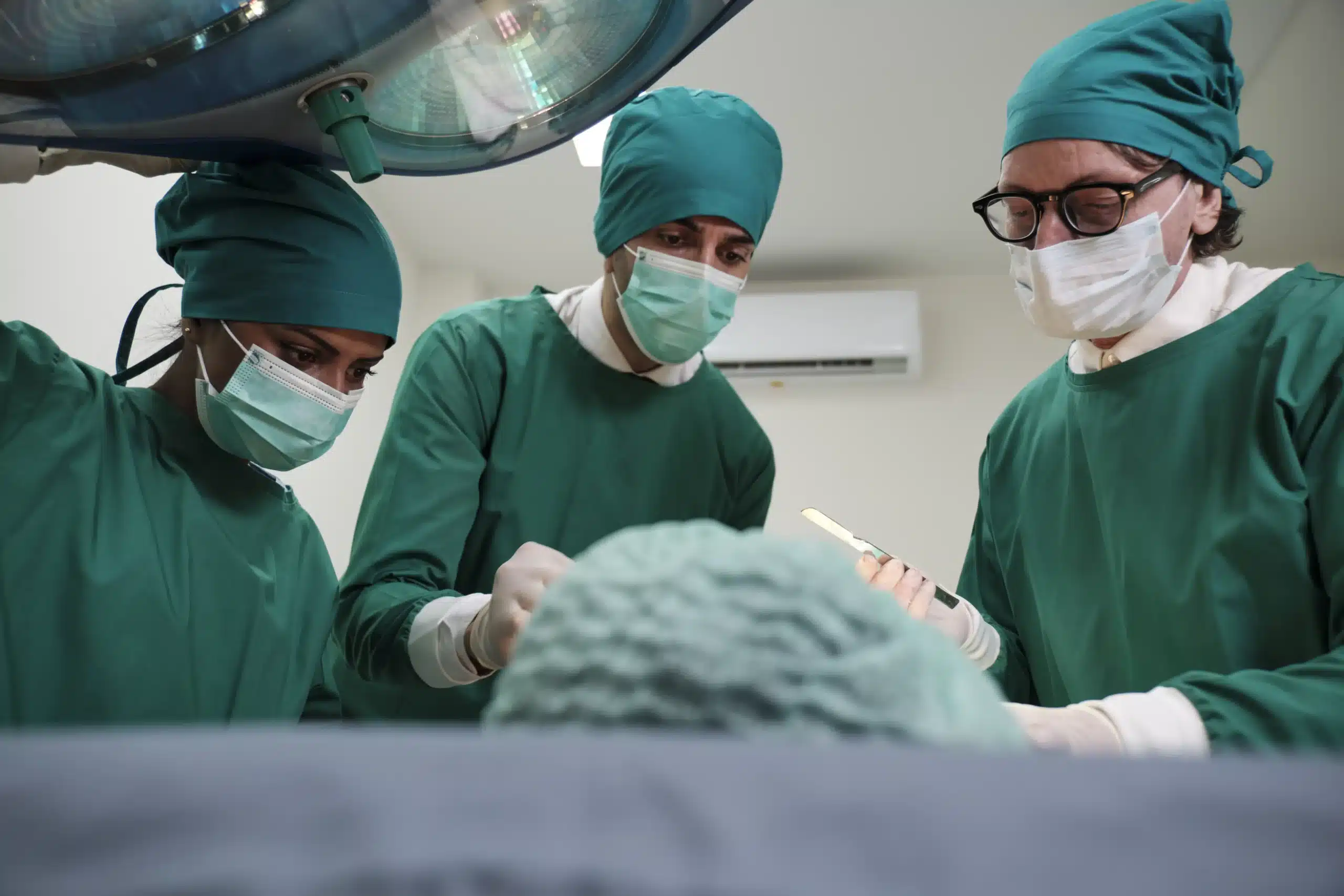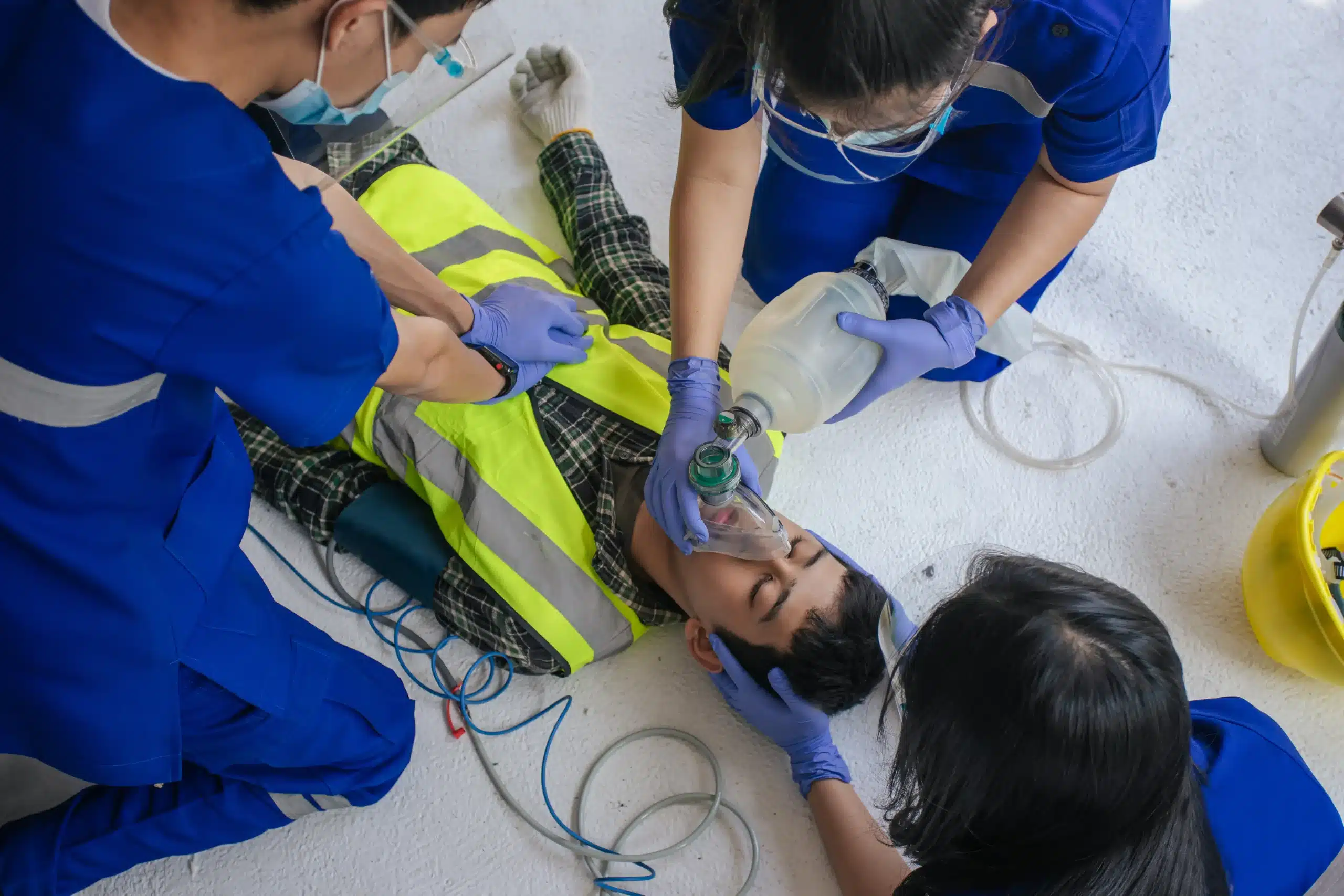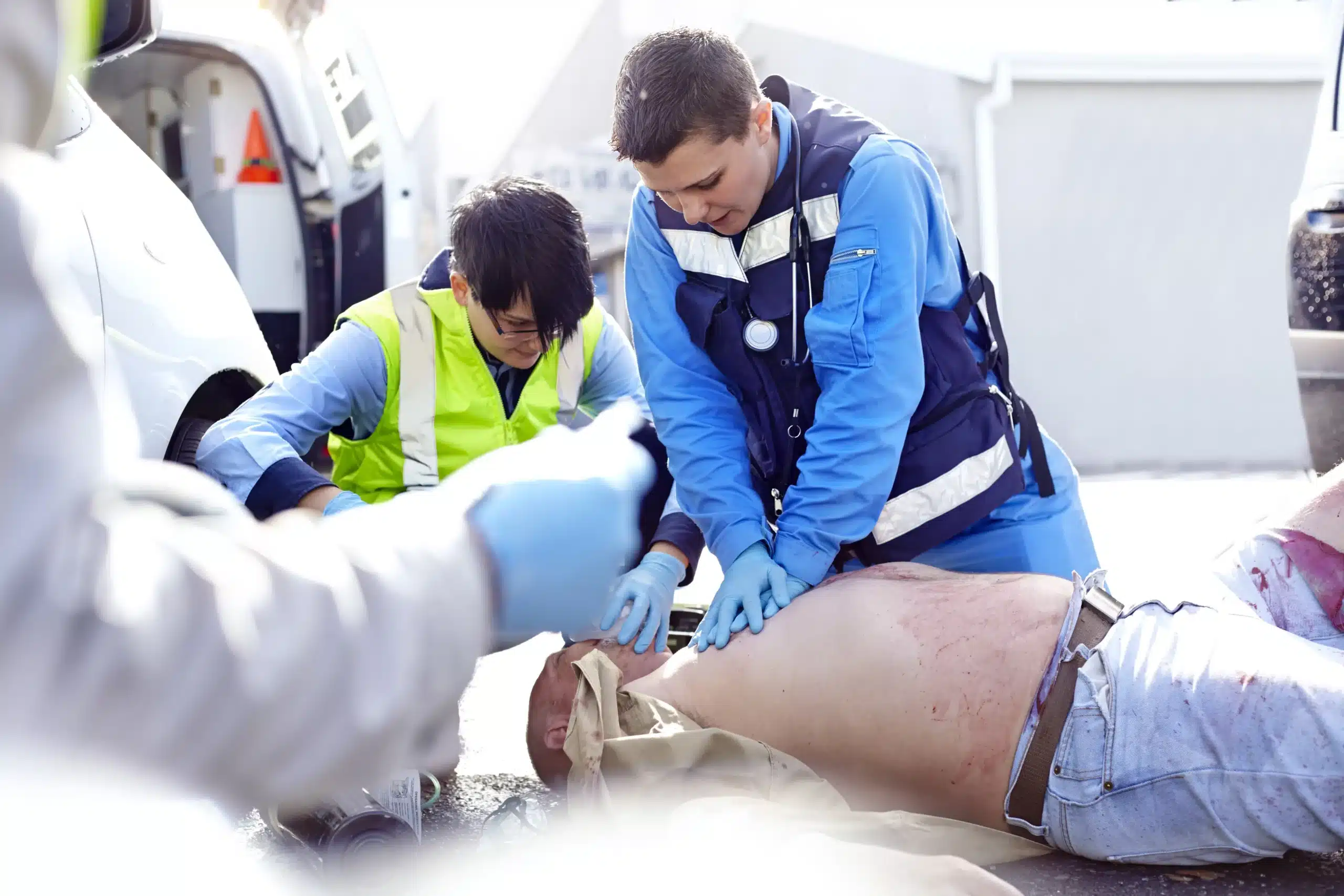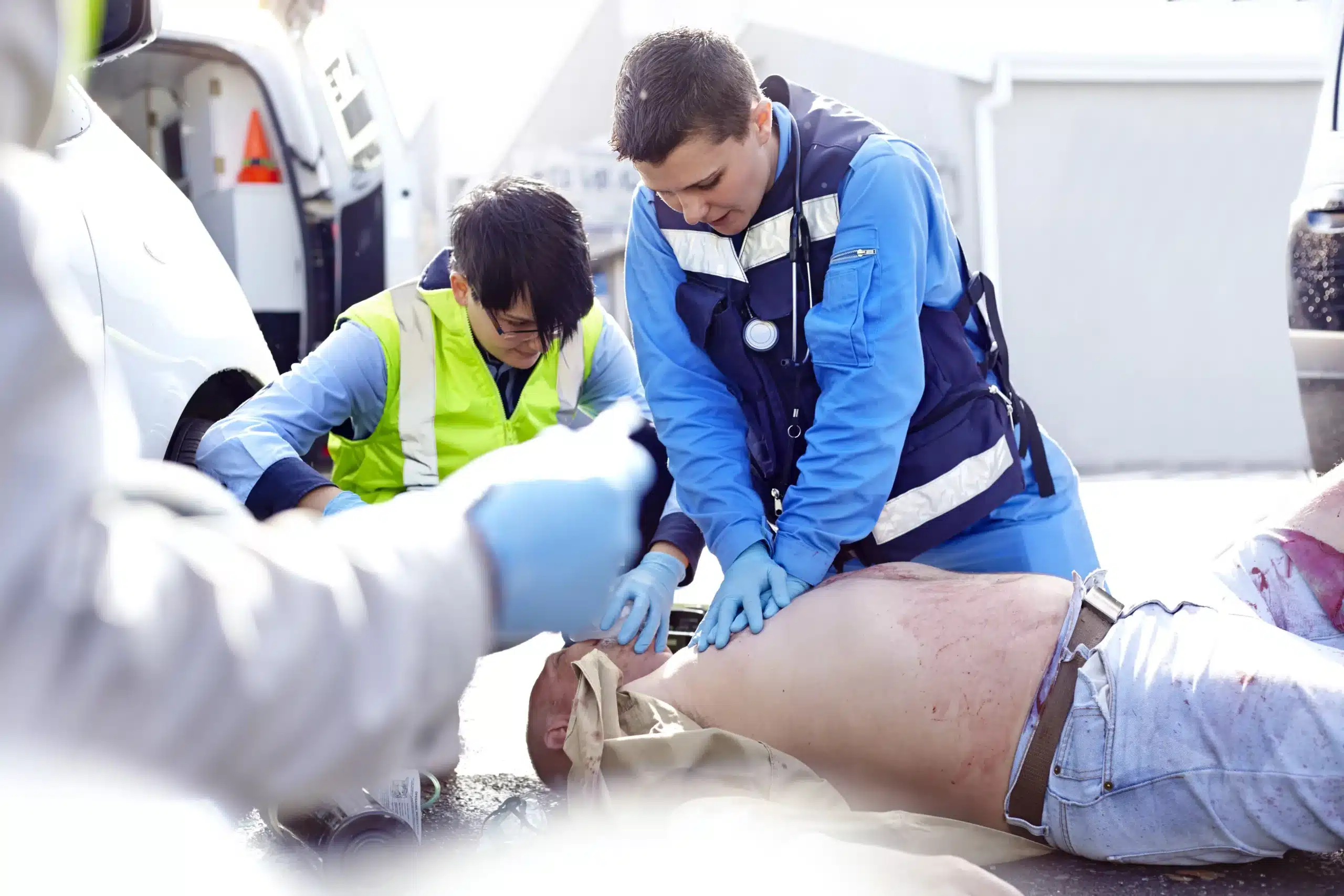Empower yourself with life-saving skills by getting your CPR certification in Hayward. This guide simplifies the process, providing clear, actionable steps to choose the right class, understand the costs, and find reputable training providers in your area. We’ll cover various CPR certifications, including BLS for healthcare professionals and combined CPR/First Aid/AED training for the community. Learn how CPR certification in Hayward can not only prepare you for emergencies but also enhance your career prospects and contribute to a safer community.
Key Takeaways
- Find the right CPR class for you: Hayward offers various CPR and first-aid courses, from basic community training to advanced certifications like BLS, ACLS, and PALS. Consider your individual needs and career goals when choosing.
- CPR training is an investment in yourself and your community: Learning CPR builds confidence, enhances your resume, and empowers you to help in emergencies. It’s a valuable skill for everyone.
- Stay current with CPR guidelines and maintain your certification: Refresh your skills and knowledge regularly through continuing education and renewal courses to ensure you’re prepared to respond effectively.
What is CPR Certification in Hayward?
CPR certification in Hayward gives you the skills to respond to medical emergencies. It means you’ve completed a course and demonstrated proficiency in cardiopulmonary resuscitation (CPR) and, often, how to use an automated external defibrillator (AED). Several organizations in Hayward offer American Heart Association (AHA) certified courses, ensuring your training aligns with nationally recognized standards. This training prepares you to confidently provide care during emergencies, from assisting someone experiencing a heart attack to helping a child who’s choking. CPR certification is valuable for healthcare professionals, workplace safety officers, and anyone who wants to be prepared. Knowing CPR can make a difference in life-or-death situations. CPR Education offers a variety of AHA-certified CPR and first-aid training, including Basic Life Support (BLS) for healthcare providers. You can also find comprehensive CPR/AED/First Aid classes with same-day certification through providers like the CPR Training Center. For those seeking AHA-certified courses like BLS, ACLS, and PALS, Safety Training Seminars is another option. Getting CPR certified equips you with lifesaving skills and contributes to a safer community in Hayward, Union City, and San Leandro.
CPR Certification Classes Available
Choosing the right CPR class is the first step. Hayward offers various certifications to meet different needs, from basic community training to advanced medical certifications. Let’s explore the most common CPR certification classes available:
Basic Life Support (BLS)
BLS certification focuses on single-rescuer and team-based CPR for adults, children, and infants. It also covers AED use, rescue breathing, and relief of choking. BLS certification is a good foundation for anyone, especially those working in healthcare or education. It emphasizes high-quality CPR and a rapid response to life-threatening emergencies.
First Aid and AED Training
Learning first aid is a practical skill for everyday life. This training equips you to handle common injuries like cuts, burns, and sprains. Adding AED training teaches you how to use this life-saving device during sudden cardiac arrest. Many workplaces require combined first aid and AED certification.
Pediatric Advanced Life Support (PALS)
PALS certification is designed for healthcare providers who treat infants and children. This advanced course covers specialized resuscitation techniques and pediatric emergency management. PALS builds upon the foundation of BLS, adding a deeper understanding of the physiological differences in younger patients.
Advanced Cardiovascular Life Support (ACLS)
ACLS is another advanced certification for healthcare professionals. It covers the comprehensive management of cardiopulmonary arrest and other cardiovascular emergencies, including post-resuscitation care. ACLS training often involves complex scenarios and simulations to prepare medical teams for high-pressure situations.
CPR Class Costs & Duration in Hayward
Knowing the cost and time commitment for CPR training helps you plan and budget effectively. Here’s a breakdown of what you can expect in Hayward:
Individual Class Prices
Individual CPR class prices in Hayward typically start around $65. This often covers CPR, AED, and First Aid training, making it a comprehensive and affordable option. Hayward CPR Classes is committed to offering the lowest prices in Alameda County, so contact us for the most up-to-date pricing on our courses. We believe cost shouldn’t be a barrier to learning these essential skills.
Group Discounts & On-Site Training
Coordinating training for a group, like a workplace or community organization? You can often find discounts. Many providers, including Hayward CPR Classes, offer reduced rates for group classes. For added convenience, some providers offer on-site training, allowing your team to get certified at your location.
Course Duration & Scheduling
Most CPR classes in Hayward run between four and five hours. This timeframe allows for both classroom learning and hands-on practice. For those interested in online options like our RQI classes, the online portion is self-paced, taking between one and four hours depending on the course (BLS, ACLS, or PALS). This is followed by an in-person skills evaluation. We offer daily classes in over 60 cities, making it easy to find a time that fits your schedule.
CPR Certification Process
Getting your CPR certification is straightforward. This section breaks down the process into three key parts: prerequisites, training, and keeping your certification current.
Prerequisites & Requirements
Specific requirements vary slightly depending on the certification level. For healthcare providers, Basic Life Support (BLS) certification is often required. Check with your employer or licensing board for specifics. Generally, there aren’t strict prerequisites for community members, making CPR training accessible to all.
Hands-on Training & Assessments
CPR certification blends online learning and in-person skills practice. Many programs use online resources like RQI courses for the knowledge portion, allowing self-paced learning. This usually takes a few hours. The skills test, often with a voice-activated mannequin, ensures you can apply your knowledge. Instructors are available for support. Hayward CPR Classes offers comprehensive CPR, AED, and First Aid training.
Certification Validity & Renewal
After completing your training and assessment, you’ll receive same-day certification. Most certifications, including those from the American Heart Association and HSI, are valid for two years. To maintain your certification, renew it before it expires. Check with your certifying organization or a training center like Hayward CPR Classes for renewal information.
Your CPR Training Experience
Getting CPR certified is about more than just a certificate—it’s about gaining the confidence and skills to act in a real emergency. Here’s what you can expect from quality CPR training in Hayward:
Classroom Instruction & Theory
CPR training starts with foundational lifesaving principles. Expect clear, concise instruction covering how to recognize cardiac arrest, understand how CPR works, and the importance of early intervention. CPR Education focuses on equipping the Hayward community with top-notch training and tools, ensuring you receive comprehensive, American Heart Association-aligned instruction. This part of the training sets the stage for the practical skills you’ll develop.
Skills Practice
Hands-on practice is key to effective CPR training. You’ll learn correct techniques for chest compressions, rescue breaths, and using an AED. Some providers, like those mentioned by Bay Area CPR, use tools like voice-activated mannequins and online RQI courses for a blended learning approach. This allows for flexible online learning combined with in-person skills assessments. This practical training builds muscle memory and confidence, preparing you to respond effectively in stressful situations.
Scenario-Based Learning
Going beyond the basics, scenario-based learning elevates your training. You’ll apply your skills in simulated emergencies, working through various scenarios requiring CPR and first aid. This immersive experience, often using mannequins and AEDs as highlighted by Bay Area CPR, helps develop critical thinking and reinforces practical application. By practicing realistic scenarios, you’ll gain the confidence to assess situations quickly and provide appropriate care during a real emergency.
Top Hayward CPR Certification Providers
Finding the right CPR certification provider is crucial for a high-quality learning experience. Hayward offers various options, from nationally recognized organizations to local training centers. This section breaks down some of the providers in the area, categorized by their certifying body. This will help you find the best fit for your needs.
AHA Certified Providers
The American Heart Association (AHA) sets the standard for CPR training. AHA-certified courses are widely accepted and respected. In Hayward, Safety Training Seminars offers AHA-certified BLS, ACLS, PALS, and CPR/First Aid classes. This ensures your training aligns with the latest AHA guidelines. For those seeking a well-known and trusted certification, choosing an AHA-certified provider is a smart move.
HSI Certified Providers
The Health & Safety Institute (HSI) is another reputable certifying body. Providers like CPR Training Center offer HSI-certified courses in Hayward. These programs often provide same-day certification, valid for two years. This makes them a convenient option for those needing certification quickly.
Local Training Centers
Hayward has several local training centers that provide CPR certification, each with its own approach.
Hayward CPR Classes
Hayward CPR Classes specializes in serving Hayward, Union City, and San Leandro. They offer a range of AHA certification courses, including BLS, ACLS, PALS, and First Aid, with discounts for group classes. This makes them an excellent choice for local businesses or community groups.
CPR Education
CPR Education focuses on providing AHA-certified CPR and first-aid training in Hayward and surrounding areas. Their goal is to equip the community with life-saving skills. They are a solid option for individuals or smaller groups seeking local, high-quality training.
Safety Training Seminars
Safety Training Seminars offers AHA-certified BLS, ACLS, PALS, and CPR classes in Hayward. They are a good choice for those wanting training that follows the latest AHA guidelines.
CPR Training Center
The CPR Training Center provides comprehensive CPR, AED, and Adult First Aid classes in Hayward. They offer convenient HSI certification.
CPR Certification Plus
CPR Certification Plus offers on-site training, bringing the training directly to you. This is a convenient choice for businesses wanting to certify their staff.
American Red Cross
The American Red Cross is a nationally recognized and trusted provider of CPR and first-aid certification. Their classes are widely available in Hayward and offer a respected certification. They are a reliable choice for individuals seeking a familiar and trusted name in CPR training.
Benefits of CPR Certification
Getting CPR certified isn’t just about learning a life-saving skill; it’s about gaining confidence, opening career doors, and becoming a more valuable member of your community. Let’s explore some key advantages:
Build Confidence & Empower Yourself
Emergencies are stressful. Knowing you can respond effectively if someone experiences cardiac arrest brings a sense of calm. CPR training equips you with the knowledge and skills to act quickly and decisively, replacing fear with confidence. Understanding CPR also helps dispel common misconceptions, empowering you to act when seconds count. This confidence extends beyond emergencies, fostering a greater sense of self-reliance and preparedness.
Advance Your Career
For many professions, especially in healthcare, CPR certification is a job requirement. BLS certification is often a prerequisite for nurses, doctors, paramedics, and other medical professionals. Even outside healthcare, having CPR certification on your resume demonstrates your commitment to safety, making you a more attractive candidate. It can also open doors to promotions and specialized roles. Learn more about how CPR certification can benefit your career.
Contribute to Community Safety
CPR-certified individuals are invaluable assets to their communities. By getting certified, you become a link in the chain of survival, increasing the chances of someone surviving cardiac arrest. Your skills can make a difference in various settings, from your workplace to your child’s school or even a local park. The more people trained in CPR, the safer the community becomes. Bay Area CPR highlights the importance of CPR training for community safety in Hayward.
Common CPR Certification Concerns
It’s normal to have a few questions or hesitations before signing up for a CPR class. Let’s address some common concerns:
“Only Certified Individuals Can Perform CPR”
One of the biggest misconceptions about CPR is that only certified individuals can perform it. This simply isn’t true. Anyone can learn and use CPR. In fact, bystander intervention is crucial in emergencies. Providing CPR before professional help arrives can significantly improve the chances of survival. Learn the skills and be prepared to act—your actions could save a life. Check out this article debunking CPR myths for more information.
“CPR Certification is Expensive”
Worried about the cost? CPR certification doesn’t have to break the bank. Many affordable options exist, including group discounts offered by Hayward CPR Classes. You can also explore online resources and blended learning programs that combine online study with in-person skills practice. These options often provide essential knowledge and skills at a lower price point. For more information on CPR costs, take a look at this article addressing common CPR cost concerns and myths.
“CPR is Only for Healthcare Professionals”
While CPR is a vital skill for healthcare providers, it’s not exclusive to them. Anyone can benefit from CPR training—from stay-at-home parents and teachers to office workers. Emergencies can happen anywhere, and having trained individuals in the community increases the likelihood of positive outcomes. Contact us at Hayward CPR Classes to find a class that fits your needs.
“You Need to Memorize Everything”
Don’t let the fear of forgetting the steps hold you back. While understanding the CPR process is important, perfect recall isn’t the main goal. The priority is to act quickly and confidently. Even if you need to refresh your memory during an emergency, taking action is what truly matters. Plus, regular practice and renewal courses help reinforce your skills and knowledge over time.
Maintain Your CPR Certification
Keeping your CPR skills sharp is essential for responding effectively in emergencies. This section covers key aspects of maintaining your certification.
Renewal Requirements & Process
CPR certifications, like those from the American Heart Association and the Health & Safety Institute (HSI), are typically valid for two years. This renewal cycle ensures you stay current with the latest CPR techniques and guidelines. Check your CPR card for the specific expiration date. Renewing your certification usually involves taking a refresher course covering core CPR skills and any updated protocols. Contact Hayward CPR Classes to find a renewal course that fits your schedule.
Continuing Education
Even if your certification isn’t up for renewal yet, continuing education is valuable for maintaining proficiency. Consider participating in workshops, online modules, or practice sessions to reinforce your skills and knowledge. This ongoing learning can increase your confidence and preparedness for real-life emergencies. Hayward CPR Classes can provide information on continuing education opportunities.
Stay Updated on Guidelines
CPR guidelines can change as research advances and best practices evolve. Staying informed about these updates is crucial for delivering effective care. The American Heart Association regularly publishes updated guidelines, and many training providers, including Hayward CPR Classes, incorporate these updates into their courses. Make it a point to stay aware of the latest recommendations to provide the best possible care during an emergency.
Choose the Right CPR Class
Choosing the right CPR class is crucial for effective learning and preparedness. The best class for you depends on your individual circumstances and objectives. Take these factors into account to make an informed choice.
Assess Your Needs & Goals
Before searching for CPR classes, ask yourself why you need this certification. Are you a healthcare professional required to maintain BLS certification? Are you a parent wanting to learn infant CPR? Or are you a workplace safety coordinator responsible for training your team? Understanding your goals will guide you toward the right type of class and provider. For example, healthcare providers often seek American Heart Association certifications like BLS and ACLS, while community members might prioritize a combined CPR and First Aid course. Clearly defining your needs is the first step.
Compare Providers & Courses
Once you know what you’re looking for, compare different CPR training providers and their courses. Look at factors like certification type (American Heart Association, American Red Cross, etc.), course content, class size, and instructor experience. Consider whether you prefer in-person or online learning, and if the class schedule fits your availability. Check for any group discounts, especially if you’re coordinating training for a workplace or community group. Hayward CPR Classes offers special pricing for groups, making it a cost-effective option. Reading reviews can also offer insights into the quality of instruction and the overall learning experience.
Make an Informed Decision
With your needs assessed and providers compared, you’re ready to make a decision. Think about the teaching style that best suits your learning preferences. Some thrive in hands-on, interactive environments, while others prefer a more traditional lecture format. Consider the location and accessibility of the training facility. Finally, confirm the certification’s validity period and any renewal requirements. By carefully weighing these factors, you can choose a CPR class that empowers you to confidently respond to emergencies. Contacting providers directly with any remaining questions can also help solidify your choice.
Related Articles
- CPR & First-aid Classes in Hayward, CA – Hayward CPR Classes
- BLS CPR Courses in Hayward, CA – Hayward CPR Classes
- AHA ACLS Classes in Hayward, CA – Hayward CPR Classes
- AHA PALS Classes in Hayward, CA – Hayward CPR Classes
- CPR, BLS, ACLS, PALS, and First-aid Courses in Hayward, CA
Frequently Asked Questions
How much does CPR certification cost in Hayward? CPR certification costs in Hayward vary, generally starting around $65 for individual classes. Often, this price includes CPR, AED, and First Aid training. Group discounts are frequently available, making it more affordable to train teams or organizations. Contacting providers directly is the best way to get the most up-to-date pricing.
What’s the difference between BLS and CPR certification? CPR is a core component of BLS (Basic Life Support) certification. BLS builds upon basic CPR by adding training in AED use, rescue breathing, and choking relief. It’s a more comprehensive certification often preferred by healthcare providers and those seeking a deeper understanding of emergency response.
How long does it take to get CPR certified? Most CPR classes in Hayward take between four and five hours to complete, including both classroom instruction and hands-on practice. Online components, if part of the course, can add a few hours of self-paced learning. Some providers offer same-day certification upon successful completion of the course and skills assessment.
How long is CPR certification valid, and how do I renew it? CPR certifications are typically valid for two years. Renewal involves taking a refresher course to ensure your skills and knowledge are up-to-date. Check with your certifying organization or training provider for specific renewal requirements and available courses.
What if I’m nervous about performing CPR in a real emergency? It’s completely normal to feel apprehensive about using CPR in a real-life situation. Quality CPR training emphasizes hands-on practice and scenario-based learning to build confidence. Remember, even basic CPR can significantly improve someone’s chances of survival until professional help arrives. Focus on taking action – any attempt is better than none.
This article was written for free by MEGA SEO.
